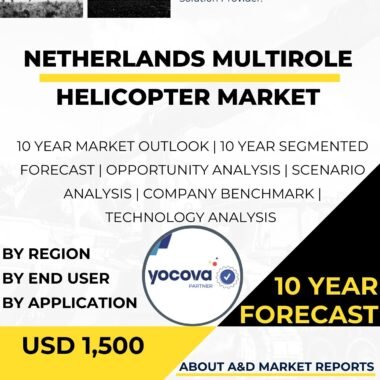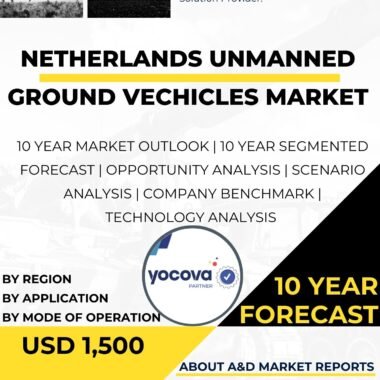Description
Market Drivers for UK Unmanned Ground Vehicles
The United Kingdom Unmanned Ground grows rapidly due to rising security threats and complex battlefields. Soldiers face fewer risks when UGVs perform dangerous tasks. Additionally, defense modernization budgets encourage investment in autonomous systems. Advanced robotics and AI integration further boost adoption. Unmanned systems reduce operational costs over time. They improve mission speed and accuracy. As a result, demand for UGVs continues to expand steadily.
Expanded Applications of UGVs
UGVs serve multiple military and humanitarian roles across the UK. They deliver supplies, ammunition, and water to frontline troops efficiently. They also conduct surveillance, mapping, and environmental monitoring. Some UGVs handle search-and-rescue and disaster relief operations. Modular designs allow quick changes for weapon or sensor payloads. Their versatility increases operational value in diverse missions. Consequently, UGVs become essential assets for modern defense strategies.
Technological Trends in UK UGVs
Innovation drives UGV development through AI, sensors, and robotics. Autonomous navigation enables systems to move without human intervention. Hybrid propulsion extends operational range while reducing energy needs. Swarming technology allows multiple UGVs to coordinate as a unit. Cybersecurity features protect systems from hacking or interference. Advanced payload modules enhance reconnaissance and EOD missions. Together, these trends improve safety, efficiency, and battlefield effectiveness.
Government and Industry Investment
The UK Ministry of Defence funds UGV development and testing extensively. Private defense firms collaborate on research and prototyping programs. Public-private partnerships accelerate AI and robotics integration into systems. Investments also support simulation, certification, and field trials. This funding ensures systems meet operational requirements quickly. Continuous support keeps the UK competitive globally. Therefore, government and industry cooperation drives market growth.
Regional Deployment and Operational Use
UGVs operate across multiple UK military facilities and allied missions abroad. They assist in training exercises and live-fire simulations. In urban areas, they perform counter-terrorism, surveillance, and perimeter security. In rugged terrains, they deliver supplies and detect mines. Their presence increases operational flexibility and safety for soldiers. Field deployment improves readiness for diverse mission types. Overall, regional use validates their importance across multiple theaters.
Integration with Other Military Systems
UGVs integrate with drones, armored vehicles, and command networks seamlessly. This connection allows real-time data sharing during missions. Coordinated maneuvers enhance battlefield situational awareness and decision-making. Satellite communication ensures long-range secure operations. UGVs relay reconnaissance information to infantry or armored units. This interoperability improves mission success and joint operations efficiency. Consequently, integrated systems strengthen overall defense capability.
Challenges in the UK UGV Market
Adversaries develop counter-UGV technologies, including jamming and sensors. Cyber threats require strong cybersecurity and constant monitoring. Urban terrain navigation remains difficult due to obstacles and interference. High production and maintenance costs can slow adoption rates. Legal and ethical standards require careful operational oversight. The market must invest continuously in R&D for competitiveness. Addressing these challenges ensures UGV effectiveness and safety.
Ethical and Legal Considerations
The UK ensures UGV operations comply with international law and human rights. Autonomous systems are monitored to prevent misuse in civilian areas. Weaponized UGVs follow strict guidelines to maintain accountability. Ethical deployment strengthens trust in autonomous technologies. Compliance with regulations enhances operational legitimacy in joint missions. Legal frameworks guide innovation while protecting civilians. Therefore, responsible use is essential for long-term acceptance.
Future Outlook and Emerging Innovations
The UK UGV market will grow steadily over the next decade. Fully autonomous systems will take on complex mission tasks independently. Sensor fusion will improve perception in challenging environments. Swarming technology will allow coordinated multi-UGV operations efficiently. Lightweight, stealthy designs will enhance covert reconnaissance missions. Integration with AI logistics platforms will optimize battlefield supply chains. Emerging innovations ensure UGVs remain indispensable in modern warfare.
Conclusion
UGVs are a key pillar of UK defense strategy and operational efficiency. They enhance battlefield awareness and reduce risks for soldiers. Strong government funding and industry collaboration support innovation. Advanced technologies expand mission capabilities and tactical flexibility. Ethical and legal frameworks guide safe and responsible deployment. Despite challenges, continuous research secures long-term competitiveness. Overall, UGVs will remain central to UK defense operations for years.




